ARABS AND MUSLIMS IN ISRAELThe freest Arabs, Christians, Jews and Muslims in Mideast are IsraelisEven after the "Palestine Liberation Organization" got authority over 95% of the Arab Palestinian population in the Gaza Strip and the West Bank, the more than one million Arab Palestinians in Israel chose to continue to live under Israeli sovereignty in the Jewish state of Israel rather than choosing to live under the all-too-unfortunate oppression which is the lot of their Arab and Muslim brothers throughout the Middle East. 77% of Israeli Arabs would even live nowhere else than in Israel. Moreover, millions of Arab Palestinian imagined "refugees" desire to "return" living in Israel.
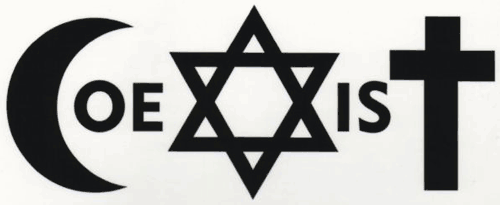 Arabs in Israel have equal rights under the law
Arabs in Israel have equal rights under the law
Arabs in Israel can vote for whoever they want
Arabs in Israel can worship freely
Arabs in Israel are entitled to the full same state education as all other Israelis
Arabs are members of the Israeli parliament and ministers in the government
Israeli society gives more opportunity to Arabs than do Arab states to their own citizens. Israeli Arabs and Muslims have the right to vote and to hold public office, like every other Israeli citizen. Nearly one-10th of the Knesset, Israel's parliament, is Arab; there is a mosque in the Knesset building for those who are Muslim. One of the justices of Israel's Supreme Court is an Arab Muslim; so is a minister in the Israeli cabinet. Arabs are active in Israeli commerce, media, education, and law. For headstrong Arabs, bent on protest, Israel is in every respect a paradise compared with any other state in the Middle East.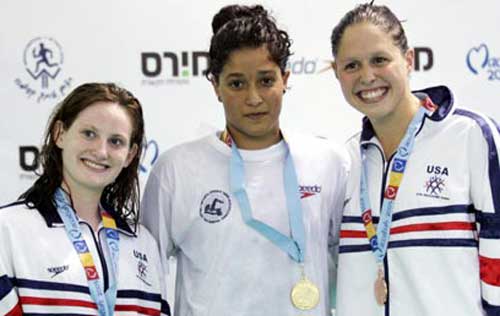 Arab Israeli wins Maccabiah gold
Arab Israeli wins Maccabiah gold Arabs volunteer for combat units of the Israel Defense ForcesFirst female Arab soldier joins elite Israel Defense Forces unit 669
Arabs volunteer for combat units of the Israel Defense ForcesFirst female Arab soldier joins elite Israel Defense Forces unit 669
Arab security guard a 'hero for the State of Israel'
Arab student wins Zionism contest
One-third of Arab households in Israel get government support as their main source of income
A secure and prosperous Israel benefits Arabs: over 100,000 illegal aliens have left Arab lands to reside in Israel
Arab Palestinians who cling to Israel

Rana Raslan, an Arab woman, was crowned Miss Israel
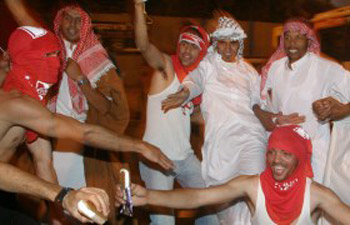
 Israeli Arab Bnei Sakhnin wins State Cup Final (Haaretz, May 19, 2004): "Sakhnin owner Mazen Ghnaim said 'many Jews and Arabs from the Galilee came to cheer us on. Sakhnin is a great example of coexistence.' Prime Minister Ariel Sharon offered his congratulations to the team and said he was certain Bnei Sakhnin would represent Israel honorably in European matches. ... Bnei Sakhnin fans heading back north after the Ramat Gan game caused traffic jams when they stopped for a spontaneous celebration at the Fureidis junction. Israeli Arab towns across the north were celebrating the Bnei Sakhnin victory."
Israeli Arab Bnei Sakhnin wins State Cup Final (Haaretz, May 19, 2004): "Sakhnin owner Mazen Ghnaim said 'many Jews and Arabs from the Galilee came to cheer us on. Sakhnin is a great example of coexistence.' Prime Minister Ariel Sharon offered his congratulations to the team and said he was certain Bnei Sakhnin would represent Israel honorably in European matches. ... Bnei Sakhnin fans heading back north after the Ramat Gan game caused traffic jams when they stopped for a spontaneous celebration at the Fureidis junction. Israeli Arab towns across the north were celebrating the Bnei Sakhnin victory."
 Arabs in Israel have equal rights under the law
Arabs in Israel have equal rights under the lawArabs in Israel can vote for whoever they want
Arabs in Israel can worship freely
Arabs in Israel are entitled to the full same state education as all other Israelis
Arabs are members of the Israeli parliament and ministers in the government
Israeli society gives more opportunity to Arabs than do Arab states to their own citizens. Israeli Arabs and Muslims have the right to vote and to hold public office, like every other Israeli citizen. Nearly one-10th of the Knesset, Israel's parliament, is Arab; there is a mosque in the Knesset building for those who are Muslim. One of the justices of Israel's Supreme Court is an Arab Muslim; so is a minister in the Israeli cabinet. Arabs are active in Israeli commerce, media, education, and law. For headstrong Arabs, bent on protest, Israel is in every respect a paradise compared with any other state in the Middle East.
 Arab Israeli wins Maccabiah gold
Arab Israeli wins Maccabiah goldArab security guard a 'hero for the State of Israel'
Arab student wins Zionism contest
One-third of Arab households in Israel get government support as their main source of income
A secure and prosperous Israel benefits Arabs: over 100,000 illegal aliens have left Arab lands to reside in Israel
Arab Palestinians who cling to Israel

Rana Raslan, an Arab woman, was crowned Miss Israel

versus 22 Arab regimes & Iran (18 Not Free, 5 Partly Free), Source: Freedom House (PDF, 187 KB)
The sole Arab parties in the Middle East participating in free elections send members to the Israeli parliament (where they use the Western freedom of speech to criticize Israel and can praise Iran and 22 Arab police regimes). The only freely elected Arab parliamentarians in theMiddle East are members of the Israeli Parliament - in Jerusalem. The only court in the Middle East from which an Arab or a Muslim can expect justice is the Israeli Supreme Court - in Jerusalem - which is one of the most highly regarded in the world. Israel is the only place in the Middle East where an Arab or Muslim can freely criticize his government.
Israel: religious freedom for all - including Moslems
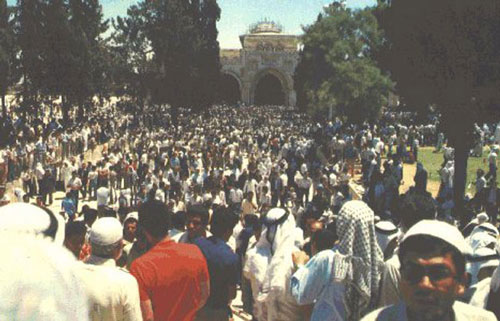
Moslems at Al-Aksa Mosque in Israeli capital Jerusalem
in Israeli capital Jerusalem

Moslems at Al-Aksa Mosque
Freedom for all religions in Israel 
vs. religious apartheid in Saudi Arabia and Palestinian Autonomy:
and Palestinian Autonomy:
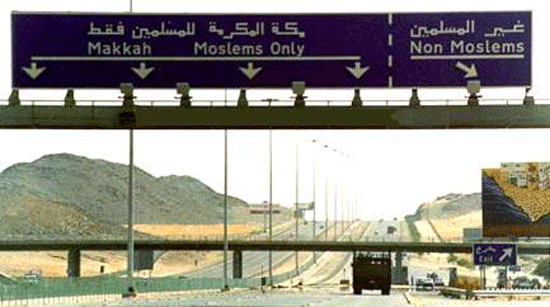
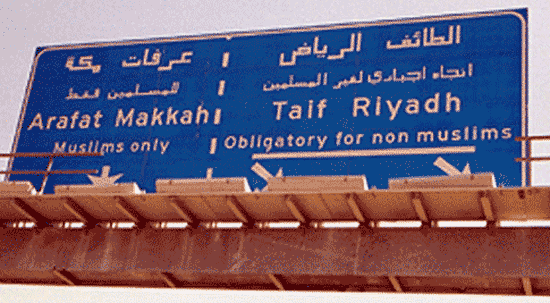
 Palestinian National Authority Official Website, Jul 2, 2003:"President Arafat Condemns Israeli Decision to Allow Non-Muslims into Al-Aqsa ... Officials from the Waqf—the Islamic trust running the site—banned Jews and other non-Muslims from visiting the site ..."
Palestinian National Authority Official Website, Jul 2, 2003:"President Arafat Condemns Israeli Decision to Allow Non-Muslims into Al-Aqsa ... Officials from the Waqf—the Islamic trust running the site—banned Jews and other non-Muslims from visiting the site ..."
vs. religious apartheid in Saudi Arabia


Arabic is one of the official languages of the State of Israel:
Israeli stamps, Israeli money,
Israeli State Comptroller and Ombudsman websiteIsraeli Supreme Court website, Israeli Parliament website
Israeli stamps, Israeli money,
Israeli State Comptroller and Ombudsman websiteIsraeli Supreme Court website, Israeli Parliament website

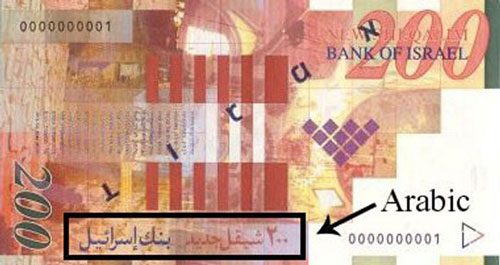
 Entrance of the State Comptroller and Ombudsman's 's official Arabic website
Entrance of the State Comptroller and Ombudsman's 's official Arabic website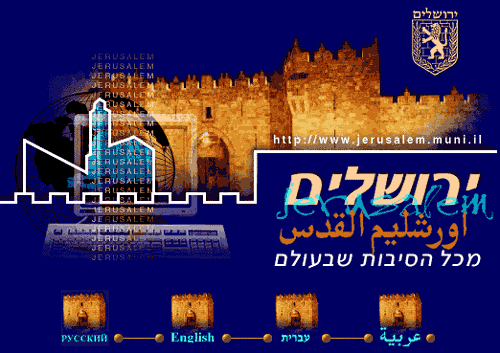
Entrance of the Jerusalem Municipality's official Arabic website
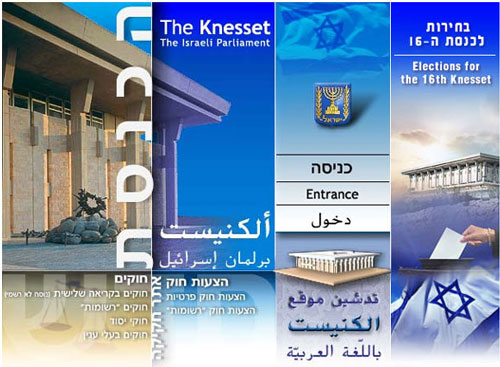 Entrance of the the Israeli Parliament's official Arabic
Entrance of the the Israeli Parliament's official Arabic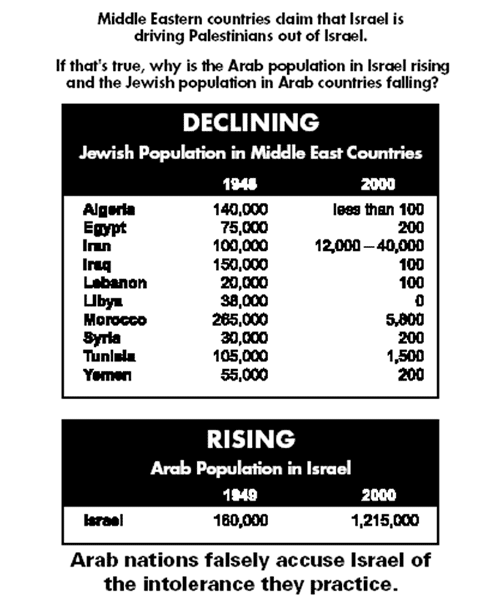
"8 times its size in 1948." - one of the world's highest annual growth rates (3.92 p.a.).
If you're a headstrong Arab or Iranian, bent on protest, Israel is in every respect a paradise compared with any other state in the Middle East:
In Lebanon, don’t try speaking out against the Syrian occupation. You won’t live long.
In Saudi Arabia, don’t try converting from Islam. You won't live long.
In Somalia, don’t try refusing sexual mutilation of your sister. She and you won't live long.
In Tunisia, don’t try saying the government is corrupt. You won't live long.
In Egypt, don’t try being a homosexual. You won't live long.
In Sudan, don’t try being a separatist. You won’t live long.
In Iran, don’t try having an affair. You won’t live long.
In Iraq, don’t try to be a party activist. You won’t live long.
In Algeria, don’t try to be suspected of Islamism. You won't live long.
In Libya, don’t try asking about her role in international terrorism. You won’t live long.
In Mauritania, don’t try helping a slave run away. He and you won’t live long.
In Syria, don’t try throwing stones at police. You won't live long.
In Oman, don’t try demonstrating for women rights. You won’t live long.
In Morocco, don’t try saying Arab Saharawis have been displaced. You won’t live long.
In Yemen, don’t try apostasy. You won’t live long.
In the Palestinian Authority, don’t try supporting democratic Israel. You won’t live long.
In Lebanon, don’t try speaking out against the Syrian occupation. You won’t live long.
In Saudi Arabia, don’t try converting from Islam. You won't live long.
In Somalia, don’t try refusing sexual mutilation of your sister. She and you won't live long.
In Tunisia, don’t try saying the government is corrupt. You won't live long.
In Egypt, don’t try being a homosexual. You won't live long.
In Sudan, don’t try being a separatist. You won’t live long.
In Iran, don’t try having an affair. You won’t live long.
In Iraq, don’t try to be a party activist. You won’t live long.
In Algeria, don’t try to be suspected of Islamism. You won't live long.
In Libya, don’t try asking about her role in international terrorism. You won’t live long.
In Mauritania, don’t try helping a slave run away. He and you won’t live long.
In Syria, don’t try throwing stones at police. You won't live long.
In Oman, don’t try demonstrating for women rights. You won’t live long.
In Morocco, don’t try saying Arab Saharawis have been displaced. You won’t live long.
In Yemen, don’t try apostasy. You won’t live long.
In the Palestinian Authority, don’t try supporting democratic Israel. You won’t live long.
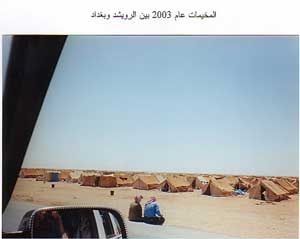

No comments:
Post a Comment